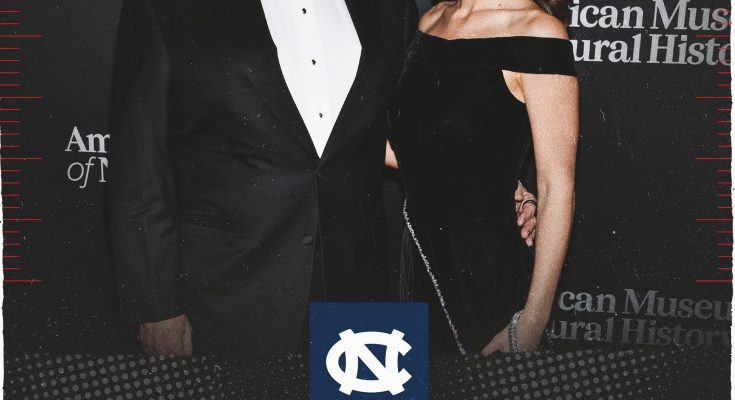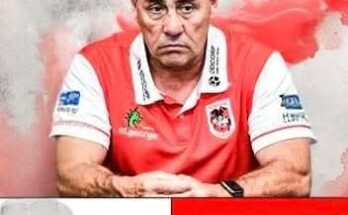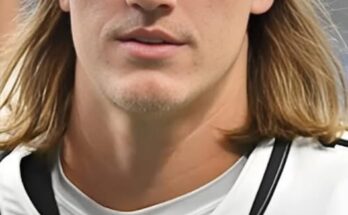The story of Bill Belichick and Jordon Hudson’s trademark applications being denied by the U.S. Patent Office, despite the New England Patriots reportedly holding the rights, offers an intriguing glimpse into the complex intersection of sports culture, intellectual property law, and brand management. This scenario is more than just a tale of rejected trademarks; it reflects the broader challenges teams, coaches, and athletes face when trying to protect and monetize their unique slogans and catchphrases. The denial of these trademarks, including “Do Your Job (Bill’s Version),” “Ignore the Noise (Bill’s Version),” “The Belestrator (Bill’s Version),” and “No Days Off (Bill’s Version),” highlights the often-complicated nature of trademark law and the subtle distinctions that can determine whether a phrase or mark is eligible for protection.
Bill Belichick, the legendary head coach of the New England Patriots, has long been recognized not only for his football acumen but also for his stoic, no-nonsense approach to the game. Over the years, Belichick has become synonymous with certain phrases and mantras that embody his philosophy and approach to coaching and leadership. Phrases like “Do Your Job” have permeated the culture around the Patriots and have become rallying cries for players, fans, and even other teams attempting to emulate his model of discipline and focus. Given the cultural significance of these phrases, it’s no surprise that there have been attempts to secure trademark protections for them, allowing the Patriots to control how these slogans are used commercially and to potentially generate revenue through merchandise and licensing.
The applications, as reported, covered four specific phrases appended with “(Bill’s Version),” an addition likely intended to distinguish these trademarks as unique derivatives linked directly to Belichick himself. “Do Your Job” was arguably the centerpiece of this group. The phrase has been a staple of Belichick’s coaching mantra for years, famously repeated in press conferences and team talks. The addition of “Bill’s Version” suggests an effort to brand the phrase in a way that clearly ties it to the coach’s persona and the Patriots organization. Similarly, “Ignore the Noise” and “No Days Off” are phrases that align with the philosophy Belichick has championed: focusing on the task at hand, avoiding distractions, and maintaining relentless effort and preparation. “The Belestrator,” which is a less immediately recognizable phrase, might be a nickname or branding effort related to Belichick himself—perhaps referring to his intense, strategic presence or a product or service connected to his identity.
Despite the clear connections between these phrases and Belichick’s brand, the United States Patent and Trademark Office (USPTO) rejected all four trademark applications. While the specifics of the rejections were not detailed in the report, there are common reasons why trademark applications might be denied that can help us understand what likely happened here. One primary issue often encountered with phrases like these is that they can be considered too generic or descriptive. Trademarks are intended to protect words, phrases, symbols, or designs that uniquely identify the source of goods or services. However, common phrases or slogans that are widely used or that simply describe a quality or characteristic of a product or service are often deemed ineligible because they do not function as unique identifiers.
For example, “Do Your Job” could be interpreted as a motivational phrase that many people use in a variety of contexts, not exclusively linked to Bill Belichick or the Patriots. The addition of “Bill’s Version” might not have been enough to create a sufficiently distinct commercial identity for the USPTO to consider the mark registrable. The USPTO is cautious about granting trademarks that could unfairly limit the use of common language or phrases in everyday speech, especially when they relate to generic advice or slogans. The same reasoning might apply to “Ignore the Noise” and “No Days Off.” Both phrases have become part of common motivational parlance well beyond sports. Unless the phrases have developed a distinct secondary meaning directly tied to Belichick’s brand in the minds of the consuming public, the trademark office might view them as too generic or merely descriptive.
“The Belestrator,” as a coined term presumably linked to Belichick, might seem like it would have a stronger claim. However, trademark law also requires that a mark not be confusingly similar to existing trademarks or be merely ornamental or descriptive of a product or service. It’s possible that the USPTO found the term either not sufficiently distinctive or overlapping with other marks or uses in a way that could cause confusion or that it did not clearly function as a trademark for the goods or services listed in the application.
It is important to note that the rights reportedly held by the New England Patriots do not necessarily mean the trademark applications would be approved. The Patriots, as the organization closely associated with Belichick, likely have significant interest in protecting the coach’s brand and related intellectual property. The ownership of rights can be complex, especially when it involves personalities and trademarks that straddle the line between personal branding and organizational identity. The team may own licenses or other rights to use these phrases commercially, but those rights alone don’t guarantee that a trademark will be registered by the USPTO.
The implications of these trademark denials are significant. From a business standpoint, trademarks are crucial tools for sports teams and athletes to protect their commercial interests. They allow organizations to control how their brand is used, to license merchandise, and to prevent unauthorized use that could dilute the brand’s value or confuse consumers. Without trademark registration, it becomes more difficult to enforce these rights against others who might try to use similar phrases for profit. For the Patriots and Bill Belichick, the inability to register these trademarks means they may have to rely on other forms of intellectual property protection or simply their market power and brand recognition to police usage.
The cultural resonance of these phrases cannot be overstated, however. Belichick’s coaching style and public persona have been instrumental in shaping the Patriots’ identity over the past two decades. His mantras like “Do Your Job” have transcended the football field, influencing how fans and players approach work ethic and discipline. This cultural significance sometimes makes the legal barriers to trademarking these phrases feel frustrating or counterintuitive, as it seems clear to fans and observers that these phrases are uniquely tied to Belichick. But the law often focuses on technical criteria such as distinctiveness, likelihood of confusion, and whether a phrase is generic or descriptive, rather than cultural association alone.
This situation also underscores the challenge of branding in the sports world where coaches, players, and teams are often intertwined in their public identities. While teams may own rights to logos and official marks, personal slogans and nicknames often occupy a grey area where personal branding meets organizational control. The addition of “(Bill’s Version)” seems like an attempt to carve out a unique niche, but trademark law requires clear distinctiveness and consumer recognition of the phrase as a source identifier, which can be difficult to prove without extensive evidence.
Another angle to consider is the timing and strategy behind these trademark applications. The fact that multiple applications were submitted around the same time suggests a concerted effort to protect these phrases comprehensively. It might have been driven by a desire to capitalize on Belichick’s enduring popularity or perhaps a new marketing push within the Patriots organization. Trademark offices tend to scrutinize applications carefully when the marks appear to be common phrases or motivational slogans, so it’s possible that the Patriots will attempt to amend the applications, provide more evidence of distinctiveness, or seek alternative legal protections.
In the broader context of sports and entertainment, trademarking phrases linked to personalities is an increasingly common practice. Athletes like Michael Jordan and LeBron James, coaches like Phil Jackson, and entertainers of all types have sought to protect catchphrases, nicknames, and slogans to secure commercial rights. The denial of these Belichick-related trademarks doesn’t mean the end of such efforts—it may simply be a bump in the road, prompting more refined strategies.
The public reaction to this news, particularly from Patriots fans and the football community, is likely mixed. On one hand, there is an appreciation for the iconic status of these phrases as part of Belichick’s legacy. On the other hand, the realities of intellectual property law remind everyone that even the most culturally significant slogans must meet legal standards to be protected. It also opens up conversations about how much control individuals and organizations should have over common language and motivational slogans that become part of the public lexicon.
In conclusion, the denial of Bill Belichick-Jordon Hudson trademark applications by the U.S. Patent Office serves as a case study in the challenges of trademark law within the sports industry. It highlights the tension between cultural significance and legal criteria for trademark registration, the complexities of personal versus organizational branding, and the strategic considerations teams face when seeking to protect intellectual property. While the New England Patriots may hold certain rights to these phrases, the USPTO’s rejection means that alternative approaches will be necessary to safeguard the commercial use of these iconic slogans. This episode not only reflects the intricacies of trademark law but also underscores the enduring impact of Bill Belichick’s coaching philosophy on American sports culture, even when the legal system refuses to grant formal protection to the words that embody it.



